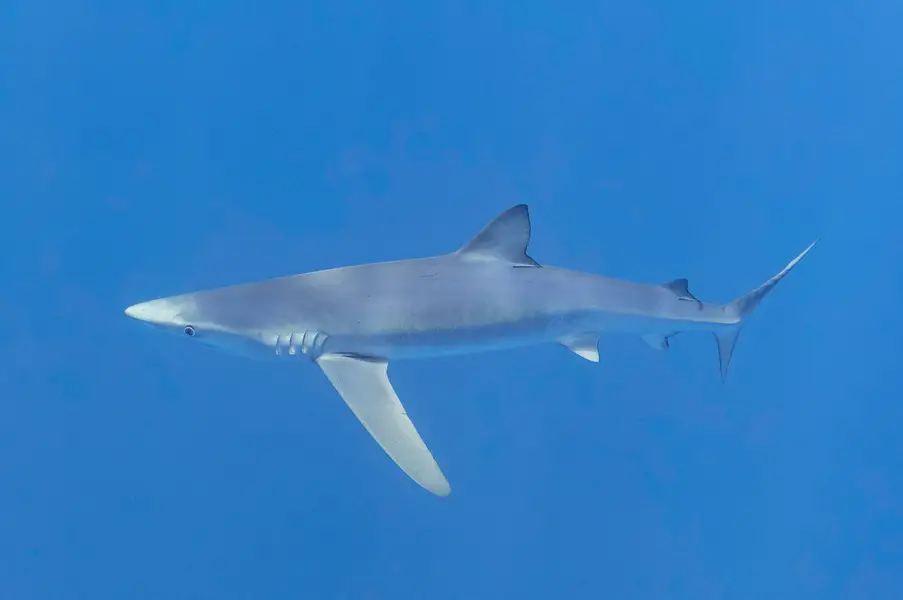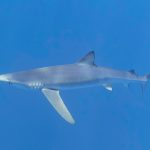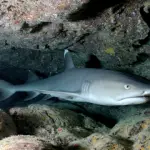
There are sharks around the Azores, which are located in the Atlantic Ocean, and there are many different species of sharks that can be found in the waters surrounding the islands. The most common species of sharks found in the Azores include the blue shark, mako shark, and hammerhead shark.
However, it’s important to note that the presence of sharks in the area does not necessarily mean that they pose a significant threat to humans. In fact, shark attacks are extremely rare, and most species of sharks are not aggressive towards humans unless provoked or threatened.
If you plan on swimming or engaging in other water activities in the Azores, it’s always a good idea to take common-sense precautions and be aware of your surroundings.
Are there great white sharks in the Azores?
While it is theoretically possible for Great White Sharks to be found in the Azores, they are considered to be a rare sight in the area. Great White Sharks are typically found in temperate coastal waters, and they are known to migrate long distances in search of food and suitable breeding grounds.
While there have been a few reported sightings of Great White Sharks in the Azores over the years, these sightings are not common, and there is no evidence to suggest that there is a significant population of Great White Sharks in the area.
If you are interested in shark watching in the Azores, there are many other species of sharks that are more commonly seen in the area, such as the blue shark, mako shark, and hammerhead shark.
Are there sharks near Sao Miguel?
There are sharks in the waters near Sao Miguel, which is one of the larger islands in the Azores archipelago. The waters around Sao Miguel are known for their rich marine life, and there are many different species of sharks that can be found in the area.
Some of the most commonly seen species of sharks around Sao Miguel include the blue shark, mako shark, and hammerhead shark. However, it’s important to note that these sharks are not typically considered to be a threat to humans, and attacks are extremely rare.
If you plan on swimming or engaging in other water activities in the area, it’s always a good idea to be aware of your surroundings and take common-sense precautions to avoid any potential dangers. This includes avoiding swimming alone, staying in designated swimming areas, and avoiding areas where sharks have been known to feed.
Shark diving in Pico
Shark diving is also available in Pico, which is another island in the Azores archipelago. The waters around Pico are known for their rich marine life, and there are several operators that offer shark diving tours in the area.
These tours typically take you out into the open ocean, where you can observe sharks in their natural habitat. Some of the most commonly seen species of sharks on these tours include the blue shark, mako shark, and hammerhead shark.
As with shark diving in any location, it’s important to choose a reputable operator and follow all safety guidelines and instructions. This includes wearing the appropriate safety gear and avoiding any behaviour that could provoke the sharks or cause harm to yourself or the animals. It’s also important to be respectful of the marine environment and follow responsible diving practices to minimize your impact on the ecosystem.
Azores shark attacks
Shark attacks in the Azores are extremely rare, and there have been very few recorded incidents of shark attacks in the area. The waters around the Azores are generally considered to be safe for swimming and other water activities, and most species of sharks found in the area are not considered to be a threat to humans.
However, as with any area where sharks are present, it’s important to exercise caution and take common-sense precautions to reduce the risk of a shark attack. This includes avoiding swimming alone, staying in designated swimming areas, and avoiding areas where sharks have been known to feed. It’s also important to be aware of the signs of a potential shark attack, such as a sudden change in the behavior of nearby marine life or the presence of a shark fin or tail in the water.
In the unlikely event that you do encounter a shark, it’s important to remain calm and avoid sudden movements. Sharks are generally not interested in attacking humans, and most incidents involving sharks occur as a result of mistaken identity or a defensive reaction. By remaining calm and slowly moving away from the shark, you can help to reduce the risk of a potential attack.
Are there whale sharks in the Azores
Whale sharks are not commonly found in the waters surrounding the Azores. While these gentle giants of the ocean can be found in many different parts of the world, they tend to prefer warmer waters in tropical and subtropical regions.
The waters around the Azores are generally cooler, especially in the winter months, which may not be suitable for whale sharks. However, there have been a few reported sightings of whale sharks in the Azores over the years, so it’s not entirely impossible to see one in the area.
If you are interested in seeing whale sharks, there are many other destinations around the world that are known for their whale shark populations, such as Mexico, the Philippines, and the Maldives.
Shark diving Azores
Shark diving is a popular activity in the Azores, and there are several operators that offer shark diving tours in the area. These tours typically take you out into the open ocean, where you can observe sharks in their natural habitat.
The most commonly seen species of sharks on these tours include the blue shark, mako shark, and hammerhead shark. These species of sharks are not typically considered to be a threat to humans, and the tours are designed to be safe and enjoyable for participants of all skill levels.
If you’re interested in shark diving in the Azores, it’s important to choose a reputable operator and follow all safety guidelines and instructions. This includes wearing the appropriate safety gear and avoiding any behaviour that could provoke the sharks or cause harm to yourself or the animals.
It’s also important to be respectful of the marine environment and follow responsible diving practices to minimize your impact on the ecosystem.
Are blue sharks dangerous?
Blue sharks are generally not considered to be a significant threat to humans, and attacks by these sharks are extremely rare. These sharks are known for their slender, streamlined bodies and are typically found in temperate waters around the world.
While blue sharks are known to be curious and may approach boats or swimmers, they are not typically aggressive towards humans unless provoked or threatened. In most cases, encounters with blue sharks are peaceful and can be a thrilling experience for divers and snorkelers.
However, it’s important to note that any wild animal can be unpredictable, and it’s always a good idea to exercise caution and follow basic safety guidelines when swimming or diving in areas where sharks are present. This includes avoiding swimming alone, staying in designated swimming areas, and avoiding areas where sharks have been known to feed.
I hope you enjoyed this article about are there sharks around Azores?
I’d love to hear from you. Tell us about your adventures of diving and snorkeling, in the comments below. Please also share your photos. Either from your underwater cameras or videos from your waterproof Gopro’s!
If this article hasn’t answered all of your questions. If you have more questions either about snorkeling or scuba diving (or specifically about Are there sharks around Azores), please comment below with your questions.
There will also be many more articles about scuba diving (and snorkeling) for you to read and learn about these fabulous sports.
Have fun and be safe!




